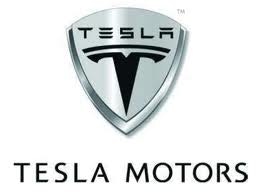Pump prices have the ability to make or break an average American’s day, month, or year. But while gasoline stations fight over tenths of cents to tempt your tank, electric vehicle “plug prices” have remained a mystery – until now. A new tool reveals all, and the results are astonishing. Let’s take a look to see whether pump prices or plug prices are the real pocket pinchers.
Pump vs. plug
The Department of Energy unveiled its “eGallon calculator” this month, a shockingly simple tool to compare state-specific pump prices to plug prices. While gas prices scream at us from street signs, electric vehicle driving costs are nowhere to be found. eGallon changes all that, opening up information for consumers to make cost-conscious decisions about what to drive.

Source: Wikimedia Commons
Looking beneath national numbers, eGallon’s data are state-specific and constantly refreshing. With the cheapest gas prices around, South Carolina’s $3.41 per gas gallon is 3.15 times its $1.08 electric equal. And Hawaii’s most expensive electricity ($3.69 per gallon) still manages to squeeze under gasoline’s $3.74. Using mileage data for the five top-selling electric vehicles in 2012 – Tesla Motors Inc (NASDAQ:TSLA)‘s Model S, General Motors Company (NYSE:GM)‘ Chevy Volt, Nissan‘s Leaf, Ford Motor Company (NYSE:F)‘s Focus, and BMW‘s ActiveE – the number cruncher compares these vehicles’ costs to a gasoline car that averages 28.2 miles per gallon. The result? On average, it costs around three times less per gallon ($1.14) to put the pedal to the metal in an electric vehicle versus a gasoline-powered vehicle.
A bit of historical perspective points to another win for electric expenditures. While pump prices can spike overnight with erratic oil, regulated utilities keep electricity prices slow and steady through thick and thin.

Source: Energy.gov
Electricity also offers a more diverse generation portfolio, creating opportunities for environmental efficiency and energy independence. And while this isn’t currently the case with coal-centric utilities or imported energy, it’s a bigger basket to choose from than anything traditional fuels have on tap.
Beyond the pump
Critics will argue that pump prices aren’t the only costs – and they’re right. Beyond the purchase price premium, electric vehicles can be more expensive in many ways. For starters, electric batteries don’t last forever. Chevy’s Volt comes with an eight-year warranty, and replacements currently clock in around $4,500. If you need a quick charge for your Tesla Motors Inc (NASDAQ:TSLA) vehicle and can’t make it to one of the automakers’ eight “supercharger” stations, go ahead and tack on $1,200 for a faster-charging home kit.
But battery technology is rapidly improving, and a new power pack eight years from now may provide magnitudes more of power at a fraction of the cost. Likewise, Tesla Motors Inc (NASDAQ:TSLA) has big plans for powering its rapidly growing fleet of vehicles. The electric-auto maker is tripling its stations this summer, with a whopping 200 planned for 2015.

Source: Teslamotors.com
Is gas a goner?
Gasoline isn’t going anywhere. But for the first time, consumers have a concrete comparison point for their daily commute. eGallon is exactly what America needs to put things in perspective, allowing drivers everywhere to now make more data-driven decisions on their next vehicle purchase.
The article Pump vs. Plug: The True Cost of Electric Vehicles originally appeared on Fool.com and is written by Justin Loiseau.
Fool contributor Justin Loiseau owns shares of Tesla Motors and lives in New Zealand, where gas is $7.50 per gallon. You can follow him on Twitter, @TMFJLo, and on Motley Fool CAPS, @TMFJLo.The Motley Fool recommends Ford, General Motors, and Tesla Motors. The Motley Fool owns shares of Ford and Tesla Motors.
Copyright © 1995 – 2013 The Motley Fool, LLC. All rights reserved. The Motley Fool has a disclosure policy.




